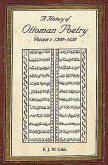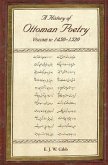Kazi Nazrul Islam (1899-1976) came into prominence in the 1920s as the 'Rebel Poet', startling the Indian literary world with his radical ideas and defiant utterances. The Dissent of Nazrul Islam focuses primarily on Nazrul's dissent against the British colonial government in India, the Gandhian non-violent means of national struggle, Islamic fundamentalism and Hindu cultural chauvinism, as well as the hegemony of Rabindranath Tagore in the world of Bengali literature. The volume also includes the English translation of some of Nazrul's verses of dissent and protest, and discusses the context of others. Surveying the literary, political, social, cultural, and intellectual circumstances that shaped Nazrul's ideas and actions and his exchanges with his space, time, and environs, Mitra illustrates how there opened alternate ways of thought and writing. This volume will be of interest to students and research scholars of South Asian history, comparative literature, and cultural studies, as well as general readers.
A pioneering work on the life and times of Nazrul Islam with translation of many of his verses, the book focuses on the poet's dissent against the British colonial government in India, the Gandhian non-violent nationalist struggle, Islamic fundamentalism, and Hindu cultural chauvinism, as also the hegemony of Rabindranath Tagore in the world of Bengali literature.
A pioneering work on the life and times of Nazrul Islam with translation of many of his verses, the book focuses on the poet's dissent against the British colonial government in India, the Gandhian non-violent nationalist struggle, Islamic fundamentalism, and Hindu cultural chauvinism, as also the hegemony of Rabindranath Tagore in the world of Bengali literature.








